His name, if he had one, was irrelevant to the thousands of people who zipped past him every day. To them, he was a smudge of brown and gray fur, just another piece of the urban grit beneath the colossal, illuminated menu board of the “Fast Burger” drive-thru. But to the dog, Atlas, that menu board was everything.
It was his roof, his windbreak, and the center of his universe.
The shelter it provided was minimal, yet dependable. The oversized plastic casing, designed to withstand rain and direct sunlight, offered a shallow, cave-like recess right at its base. It was here, in the dirt and discarded wrappers, that he built his life. The spot was perfect: warm during the day from the sun hitting the steel frame, and illuminated at night by the bright menu lights.
Atlas was a master of stillness. His coat, a mottled mix of mud and dust, blended perfectly with the shadow cast by the speaker box. He learned early on that the fastest way to survival in this relentless human thoroughfare was invisibility. His routine was clockwork: find a good spot, curl tightly, and become a fixture. The humans, locked in their climate-controlled boxes, barely saw the speaker, let alone the small, weary soul beneath it.

For months—a stretch of time marked by the shift from sticky summer heat to the biting chill of autumn—Atlas watched the parade. He watched the polished tires pause inches from his head, the exhaust plumes, the glare of mobile phone screens illuminating driver’s faces.
He was privy to countless human dramas. He heard the exasperated sighs of commuters running late, the giddy squeals of children demanding extra fries, and the muffled arguments of couples. He knew the difference between the morning coffee crowd and the late-night burger run. They all stopped, they all spoke into the speaker, they all drove away with a paper bag of warmth.
None of them saw him.
It wasn’t malice; it was a profound absence of noticing. To the drivers, the world outside their window began and ended with the menu options and the card reader. They were focused on speed, convenience, and consumption. He was merely background static.
On the rare occasions a driver did glimpse him, the reaction was always the same: a momentary flicker of surprise, followed by immediate disinterest as they remembered the priority: I need to order. He would tuck his head tighter, holding his breath, waiting for the brief interruption to pass. He’d learned that any engagement—a bark, a move, a visible plea—was dangerous. It risked eviction from his one safe place.
His sustenance came from the forgotten crumbs and dropped scraps—a half-chewed chicken nugget, the rim of a paper cup sticky with soda. He was thin, yes, but he was alive, sustained by patience and the residual warmth of the industrial machinery above him.

One Tuesday morning, as the sun broke over the strip mall, the rhythm changed.
The car was a dented, pale blue pickup, parked not for an order, but just past the speaker, slightly askew. The driver, a woman named Anya, with kind, dust-colored hair pulled into a loose bun, wasn’t looking at the menu. She was looking down.
Atlas, deep in a semi-sleep, felt the shadow shift. He braced himself, ready to flatten further into the dirt.
Anya didn’t speak into the speaker. She simply opened her door, slowly, carefully. The sound of her boots crunching on the gravel was alarmingly close.
Instead of ordering, she knelt.
She had been watching the local news, seen the viral photo posted by an unusually observant night shift worker: a picture, slightly blurred, of a weary dog curled at the base of the menu. Invisible no more.

Anya didn’t lunge, didn’t use a leash, and didn’t make any sudden, loud noises. She just lowered herself onto the dirty pavement, placing her hands palms-up on the ground. She waited.
“Hello there, Atlas,” she whispered, giving him a name, her voice soft and low, a sound the dog hadn’t heard directed at him in a language he could understand for a very long time.
He watched her with wide, cautious eyes. This was the moment. He was finally seen, and the panic that usually accompanied detection was mixed with a confusing, aching warmth. The human didn’t smell of fast food or hurried appointments. She smelled of a slow morning, of clean laundry, and of patience.
Anya slowly slid a small bowl of fresh water forward, followed by a tin of something wet and fragrant. The scent hit him—real, actual food. It was almost too much.
He hesitated, his gaze locked on her face, searching for the trick, the sudden movement. There was none. Only calm, steady eyes that held a depth of compassion he hadn’t experienced since he was a puppy.

Finally, the primal urge to eat overcame his fear. He moved slowly, deliberately, and began to drink, water spilling over his scruffy muzzle. He ate the soft food in quick, nervous gulps, a mixture of shame and gratitude running through his starved body.
Anya didn’t try to touch him. She just sat there, allowing him the space and time he needed to confirm that, for the first time in months, the moment wasn’t about the menu or the order, but about him.
When he finished, he looked at her again. He didn’t run. He didn’t hide. He simply sat back and offered her a small, tentative tail-wag—a rusty, forgotten movement that surprised even him.

In a world that prized speed and disregarded the still, small things, Anya was a disruption. She had broken the long silence of his invisible existence and offered him not a burger, but a lifeline, proving that even under the brightest neon lights, it was still possible for someone to stop, look down, and truly see.
The Quiet Observer, Atlas, was finally observed. The long wait was over.


